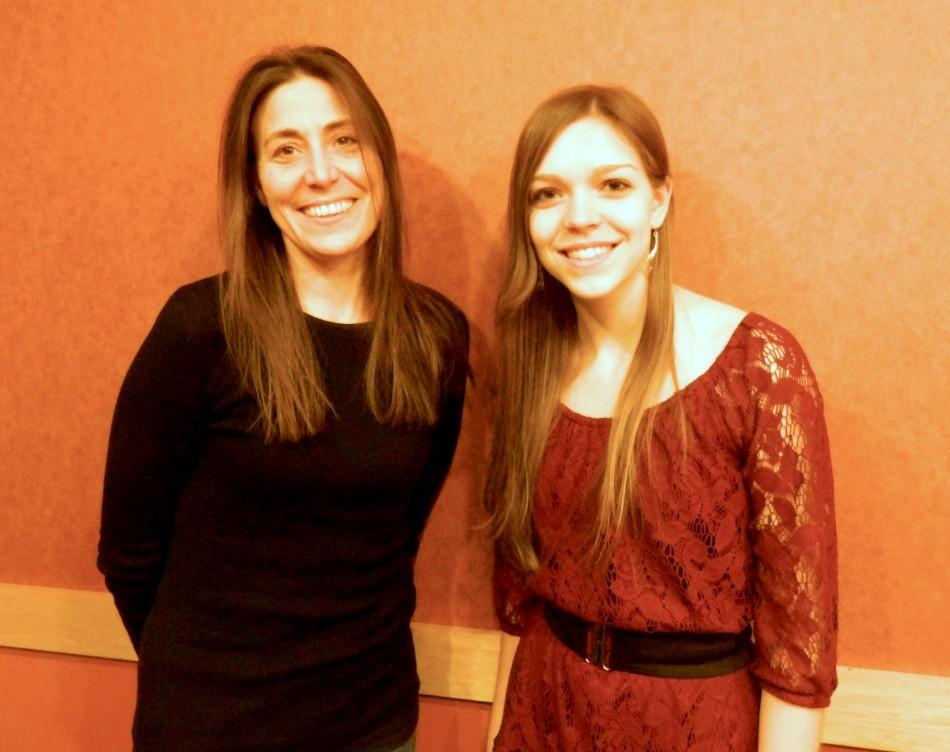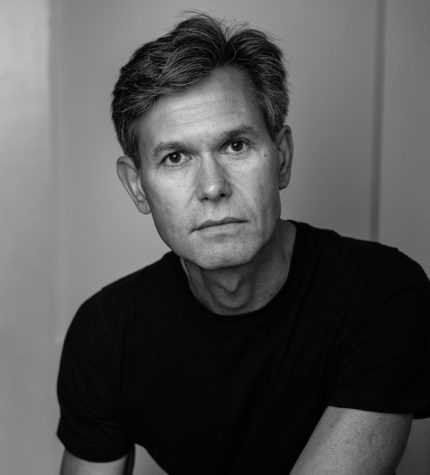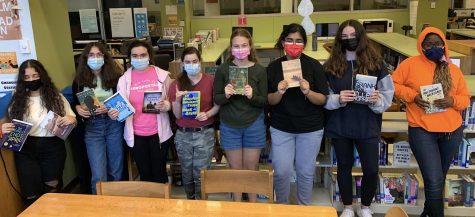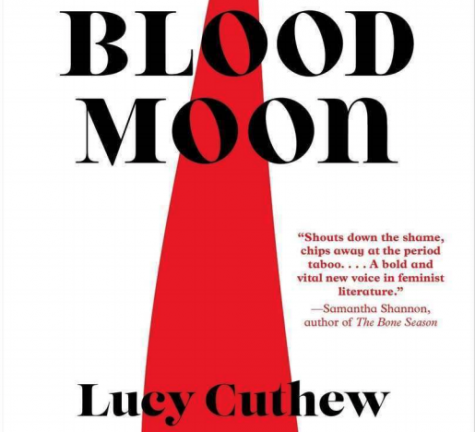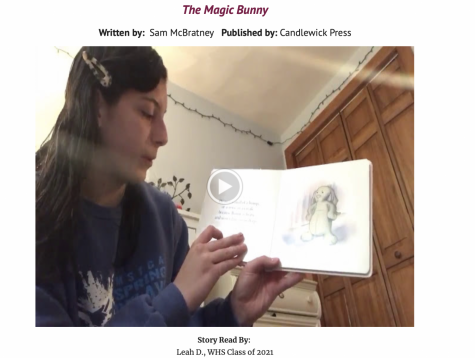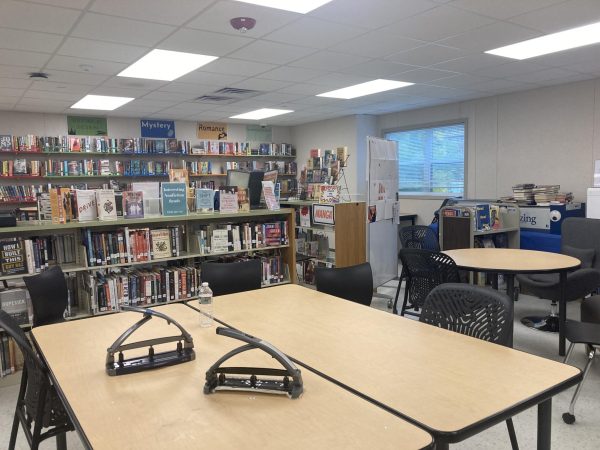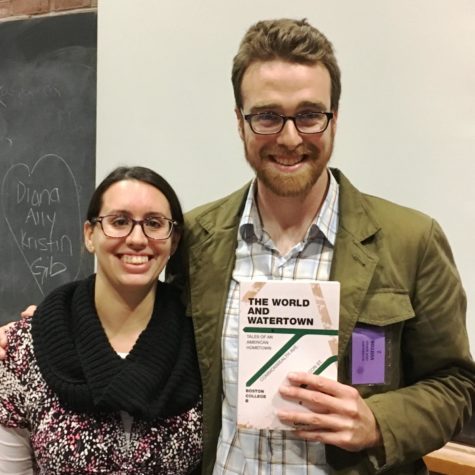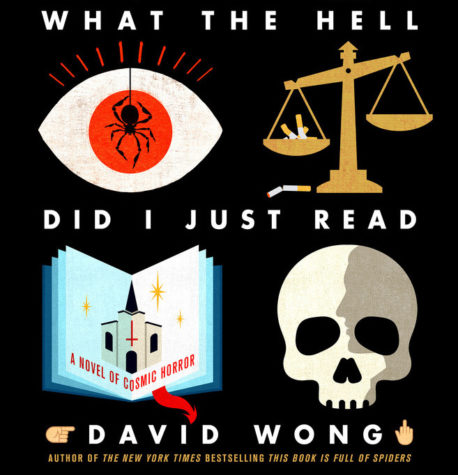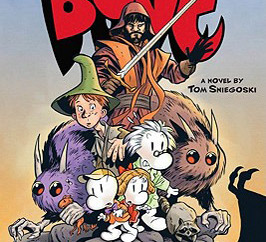Her permanent home on the writer’s block
Newbery Award-winning author Rebecca Stead dreads nothing — just like everyone else
The author and the author: Rebecca Stead with her interviewer from the Raider Times at Lesley University in Cambridge, Mass., on Jan. 8, 2014.
It’s 3 a.m. and you are staring through glazed eyes at the screen of your laptop. You have a mug of coffee in one hand, although it’s probably empty by now because you have been guzzling it like it’s your life’s energy source. The other hand is hovering over the keyboard. Just hovering. Your eyelids are heavy and you are fighting the head bob. The screen of your laptop is a glaring white. Empty. Blank. And you only have three hours left before a completed essay needs to appear on the screen so you can print it out for school.
We’ve all been there, whether it was for a school assignment or a passion for poetry. Writer’s block has tormented us all. Yes, even the professionals.
I don’t know what I was expecting as I stood in the lobby at Lesley University waiting for Rebecca Stead to arrive. Logically, I knew what to expect, but I guess some part of me was still expecting to see an army of buff bodyguards or a swarm of paparazzi.
Yes, Rebecca is an award-winning author of three acclaimed novels — most notably, the Newbery Award-winning “When You Reach Me” — and a wildly talented writer. But she is also New Yorker, a mom of two boys, and a person, just like everyone else.
Despite Rebecca’s successful career as an author she is no stranger to the torment of writer’s block. In fact she exclaimed, “It’s my permanent state of being!” But she has no magic cure that will allow plots and characters to pour freely from a pencil. Rather, her success in the fiction industry stemmed from an important lesson she has been learning throughout her entire career: patience and acceptance.
There are some powerhouse authors that can crank out novels like a candy factory, but not every author is like that; most don’t write like that at all. The thing about writing is that it is unique to each individual who ever picks up a pen. Everything about it is personal, from the process to the material, and there is no right way to do it.
Rebecca is a slow writer. She struggles to come up with plots and often takes breaks for months at a time while creating a novel. And that’s OK! Her ability to be patient with herself and accept her own style has allowed her to balance the playfulness of a youth novel with a subtle emotional depth that authentically communicates the emotions of a child and has led her to many awards for her fiction.
You don’t have to be born with an ocean of stories sitting around in your mind to become a writer and you don’t have to be a tortured soul pent up in a cluttered, dimly lit office for years on end or be a child literary prodigy to have a successful writing career either.
Rebecca didn’t even start out her career in the language arts. She loved to read from childhood and in high school she also discovered a passion for writing, but she pushed the thought of becoming an author out of her mind believing the notion to be “ridiculous,” and worrying about the practicalities of earning a living.
So, after high school, she decided to travel a more reliable path and become a lawyer.
She only began to write seriously after she had her children, drafting her first novel while on maternity leave. But after her new career took off, she never looked back. It has been 12 years.
According to Rebecca, the most important thing to become a successful writer is to be patient. Don’t beat yourself up for struggling; learn to accept yourself and your style. Don’t compare yourself to the other writers around you, instead form a community with them and fuel each other’s passion. Don’t be afraid to take that risk, or join that class or submit your story because even the best writers get rejected. Realize that you have a voice and that it matters. Lastly, but most certainly not least, read, read, read!
–March 8, 2014–
Your donation will support the student journalists of Watertown High School. Your contribution will allow us to purchase equipment and cover our annual website hosting costs.
